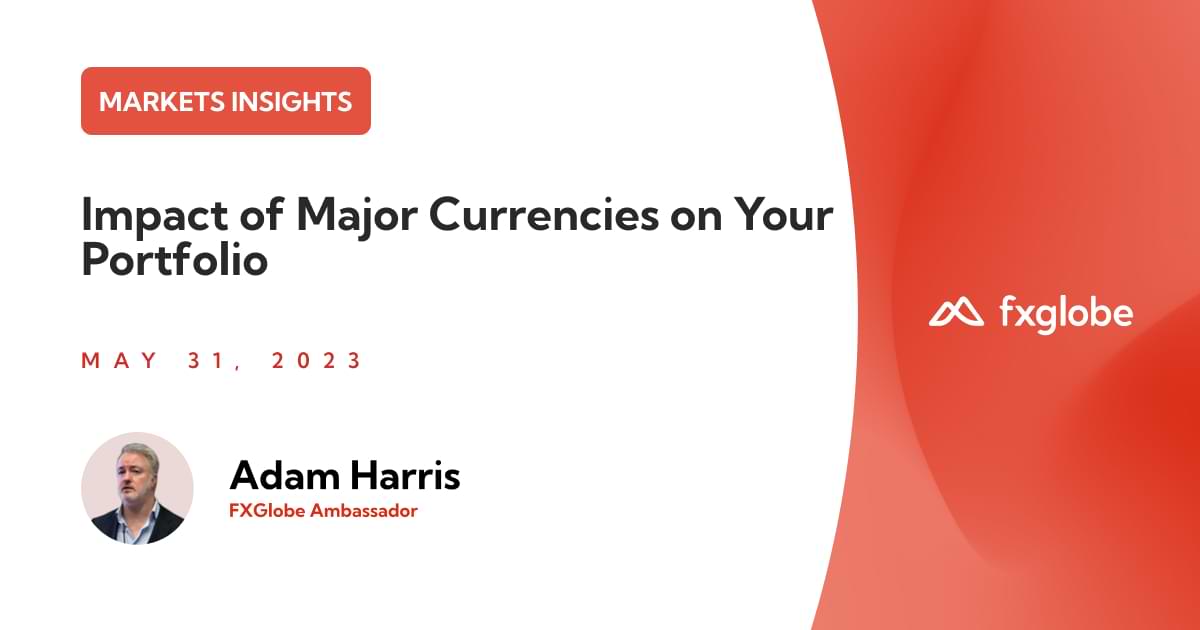As savvy investors will tell you, incorporating major currencies into your investment portfolio is more than a smart move; it’s a guard against inflation and economic uncertainties.
The usual suspects include:
- The US dollar
- Euro
- Japanese yen
- British pound sterling
- Swiss franc
- Canadian dollar
Why are they so crucial, you ask? Well, they offer an attractive option for investors looking to hold the reins on their investments. They do this either by directly navigating the seas of foreign exchange trading or by taking the scenic route via mutual funds or exchange-traded funds (ETFs).
Incorporating major currencies in your portfolio can be a clever diversification strategy, helping to reduce risk and volatility. But let’s not forget, with the thrill of potential gain comes risks. Currency fluctuations and geopolitical events can alter values unexpectedly. So, before diving into the world of major currencies, remember to take a long, hard look at your investment objectives and risk tolerance. Because, let’s face it, you’re not in the game for the thrill alone; you’re in it for the potential payoff!
The Impact of Currency Fluctuations on Your Investments
Like an intricate labyrinth, foreign currency investing offers a treasure trove of opportunities but also significant risks if not navigated wisely.
The unpredictability of currency fluctuations is a substantial risk—and it’s often a curveball for investments. Picture this: you’ve invested in a Japanese company’s shares, and unexpectedly, the yen strengthens against the US dollar.
Such a scenario can be a hard pill to swallow. If you decide to sell your shares now, the stronger yen will yield fewer dollars on conversion than if you had sold before this fluctuation.
However, it’s not all doom and gloom. Should the yen weaken against the dollar, you could end up pocketing more dollars from your investment. But, like a bolt from the blue, these shifts can occur without warning.
That’s why staying abreast of potential economic events impacting exchange rates and keeping an eye on major markets is non-negotiable. It’s not just about being in the know; it’s about safeguarding your investments.
Navigating Currency Investing: the Balance Between Risk and Rewards
Investing in foreign currencies is like traversing a minefield—the potential for substantial gains is appealing, but significant risks are hidden just beneath the surface. Even a minor misstep can lead to a cascade of losses.
To mitigate these risks, some investors use hedging strategies, such as futures or options contracts, allowing them to secure exchange rates ahead of time. However, these strategies bring their own challenges that, if not properly considered, could result in even greater losses.
Currency fluctuations are a key challenge when investing in foreign currencies. These shifts can drastically affect investments, swinging them between substantial profits and significant losses. It’s crucial for investors to consider the strength of the foreign currency against their own when investing in international stocks.
If the foreign currency strengthens, investors might find their profits reduced when they convert the returns back to their own currency. But if the foreign currency weakens, the conversion could lead to increased returns. Staying informed about global economic events and monitoring major markets for signs of change are crucial strategies for currency investors.
Futures or options contracts can be useful tools for those seeking to hedge against volatility caused by currency fluctuations. However, these strategies need careful consideration due to the associated risks.
How to Diversify Your Portfolio With Currencies
Currency diversification may seem daunting, but don’t worry! Some strategies can guide you.
Firstly, consider currency ETFs or mutual funds. They track multiple currencies, spreading your risk and granting access to diverse markets.
But there’s another strategy—investing in foreign bonds. These bonds are denominated in various currencies, opening new foreign markets to you. Plus, they take advantage of interest rate differences between countries.
However, remember that all investments carry risk. With foreign bonds, changes in credit ratings and fluctuating interest rates can affect bond prices. So, always weigh these potential risks before venturing into new investment territories.
Dizzy with choice? Don’t stress!
Consider hedging against currency risks with options contracts. They’re like magic keys, giving you the right, but not the obligation, to buy or sell certain currencies at a set price within a specific time.
Picture this: you’re shielded from unfavourable currency changes, while still standing to profit when the market smiles your way.
Wondering how this works? It’s all about a strategy that lets you ride the wave of positive market movements and hedge against those pesky downturns. Now, doesn’t that sound like having your cake and eating it too?
Strategies to Mitigate Currency Risk in Your Portfolio
Does the maze of currency risk leave you scratching your head? Fear not! There are ways to steer clear of these risks and fortify your portfolio.
Diversifying across multiple currencies is a key strategy. By doing so, a hiccup in one currency won’t wreak havoc on your entire investment. A smart start? Consider stable currencies like the US dollar, euro, and Japanese yen.
Additionally, hedging strategies like forwards or options contracts can cushion you from losses due to exchange rate surprises.
But remember, it’s vital to balance these strategies’ perks against their costs to see if they fit your investment goals. To truly master managing currency risk, keep a finger on the pulse of global economic news and major currency market trends.
Stay alert for game-changers like interest rate swings, geopolitical ripples, or shifts in trade policies that might jostle exchange rates. Armed with these insights, you can adapt your portfolio to evolving conditions, rather than being caught off guard.
Keeping Up With the Latest Developments in Major Currency Markets
In the fast-paced world of currency trading, keeping your finger on the pulse is crucial, as markets can shift quickly. To stay ahead, it’s a great idea to check out specialized financial news outlets regularly. These sources offer unique perspectives on market trends, informing your investment decisions.
Remember, social media can be a friend too! It’s become an indispensable tool in staying up-to-date with the latest in the currency market. Real-time analyses shared by traders on platforms like Twitter or Facebook could give you handy insights into movements across different currencies.
And let’s not forget networking events or industry conferences. These gatherings are a goldmine of knowledge, bringing together experts who share their experiences – insights you can weave into your own trading strategies.
Whether you’re new to the trading game or have years of experience, following these sources can give you that necessary edge when investing in major currencies. There’s always something new to learn, so why not make the most of it?











